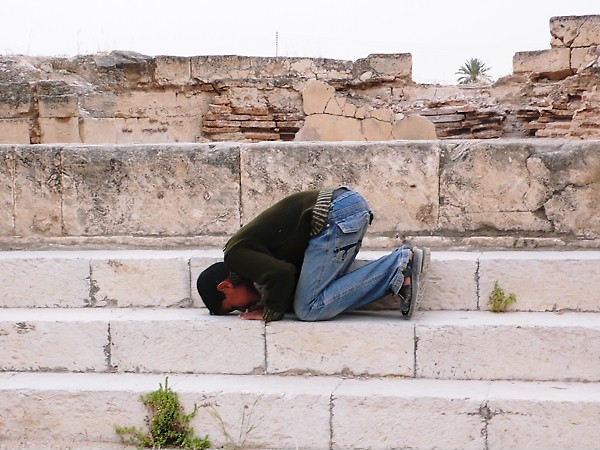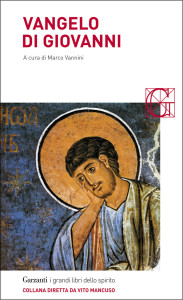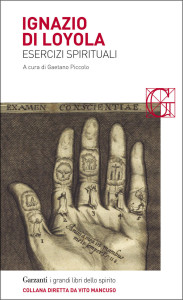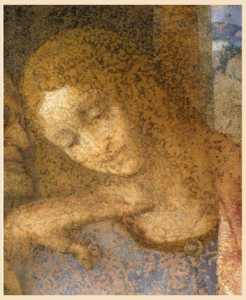
Di fronte alla tragedia del terremoto che purtroppo questa notte ha colpito il centro Italia, riporto queste riflessioni scritte il 12 marzo 2011 per orientare la mente di fronte alla catastrofe naturale che allora colpì il Giappone poi pubblicate anche in una pagina del "Principio passione". Il nostro dramma non è paragonabile per entità e numero di vittime a quello giapponenese, ma la dinamica dell'evento è del tutto identica. Attualizzando ad oggi ecco quello che scrissi:
1) Quello che è avvenuto questa notte non è qualitativamente diverso da quanto avviene ogni giorno, quando, per esempio, viene al mondo un bambino con una malattia genetica. Certo, le forze in gioco sono quantitativamente incommensurabili, tuttavia il terremoto che si abbatte su quella giovane vita e sui suoi genitori è qualitativamente il medesimo di un terremoto devastante. In entrambi i casi è la vittoria del caos, del disordine, del disequilibrio.
2) Quello che è avvenuto questa notte e sta avvenendo oggi con la messa in moto a livello nazionale ed europeo della macchina degli aiuti non è qualitativamente diverso da quanto avviene ogni giorno, quando i genitori e i parenti di un bambino nato con una grave malattia genetica si prendono amorevolmente cura di lui, e con loro la società nelle sue diverse forme, medici e infermieri, scuola e assistenti sociali, amici e associazioni. In entrambi i casi è la vittoria del logos, dell’ordine, dell’equilibrio.
3) Così la nostra vita procede tra caos e logos, tra disordine e ordine, tra entropia e neghentropia. Esiodo nella Teogonia scrive: “Primo fu Caos”; Giovanni nel Quarto Vangelo scrive: “In principio era il Logos”. Chi ha ragione? Entrambi. Se ci fosse solo caos, la vita non sarebbe sorta, saremmo ancora ai gas primordiali dell’inizio, idrogeno ed elio e nulla più, anzi forse neppure idrogeno ed elio perché anche loro per esserci vincono il caos con la loro struttura logica di nucleo + elettroni; e se ci fosse solo caos, nessuno di fronte al terremoto-tsunami si metterebbe in gioco per aiutare gli altri. Ma se ci fosse solo logos, la vita sarebbe diversa: nessuna catastrofe, nessuna malattia genetica, nessuno scatenarsi di forze senza volto, le forze caotiche della natura sarebbero sempre domate da una signoria più potente.
4) Caos + logos, invece, si danno insieme, ogni manifestazione della vita è una miscela di queste due dimensioni, con il prevalere ora di una, ora dell’altra. Il loro incontro produce la vera, ultima dimensione della realtà, cioè la passione e il lavoro che essa richiede. Goethe ha visto bene quando nel Faust scelse di tradurre il greco del Quarto Vangelo, En arché en ho lógos, con “Im Anfang war die Tat”, “In principio era l’Azione”. L’azione, il dramma, è esattamente ciò che scaturisce dall’incontro tra logos e caos. Se prevalesse solo una delle due dimensioni, non ci sarebbe azione.
5) Se il caos fosse la dimensione ultima alla quale consegnare la nostra più preziosa energia, nessuno sentirebbe l’impulso ad arginarlo, a vincerlo, a domarlo mediante il logos. L’azione, cioè la lotta del logos contro il caos, a mio avviso dimostra che il nostro orizzonte finale è il logos, ovvero l’armonia e il bene. Tutta l’impresa umana nella sua più alta significatività è lotta contro il caos, è, esattamente in linea con quanto scrive Esiodo, “teogonia”, cioè generazione del divino, nascita della divina armonia dentro di noi per immetterla, così come riusciamo, anche fuori di noi, soprattutto quando ce n’è un estremo bisogno come in queste ore nel centro Italia.
Vito Mancuso
 Penso che abbia completamente sbagliato bersaglio la professoressa Rosanna Virgili nel criticare aspramente su 'Avvenire' del 1° settembre il mio articolo redazionalmente intitolato 'L’islam, il cristianesimo e la polemica sul burkini' apparso su Repubblica del 27 agosto scorso. L’obiettivo del mio contributo infatti non era in alcun modo l’esegesi e l’ermeneutica del controverso pensiero di san Paolo riguardo alle donne, quanto piuttosto una riflessione sulla differenza tra Occidente e Islam a partire da tre fatti inequivocabili: 1) che per secoli e secoli nel mondo occidentale e nel mondo islamico si è avuta una palese sottomissione della donna al potere maschile; 2) che oggi nel mondo occidentale quella sottomissione della donna non c’è più; 3) che l’abbigliamento è un chiaro indice di tale evoluzione, visto che prima le donne occidentali non mostravano gambe e braccia in pubblico e portavano il velo in chiesa, mentre oggi agiscono del tutto all’opposto …
Penso che abbia completamente sbagliato bersaglio la professoressa Rosanna Virgili nel criticare aspramente su 'Avvenire' del 1° settembre il mio articolo redazionalmente intitolato 'L’islam, il cristianesimo e la polemica sul burkini' apparso su Repubblica del 27 agosto scorso. L’obiettivo del mio contributo infatti non era in alcun modo l’esegesi e l’ermeneutica del controverso pensiero di san Paolo riguardo alle donne, quanto piuttosto una riflessione sulla differenza tra Occidente e Islam a partire da tre fatti inequivocabili: 1) che per secoli e secoli nel mondo occidentale e nel mondo islamico si è avuta una palese sottomissione della donna al potere maschile; 2) che oggi nel mondo occidentale quella sottomissione della donna non c’è più; 3) che l’abbigliamento è un chiaro indice di tale evoluzione, visto che prima le donne occidentali non mostravano gambe e braccia in pubblico e portavano il velo in chiesa, mentre oggi agiscono del tutto all’opposto …







